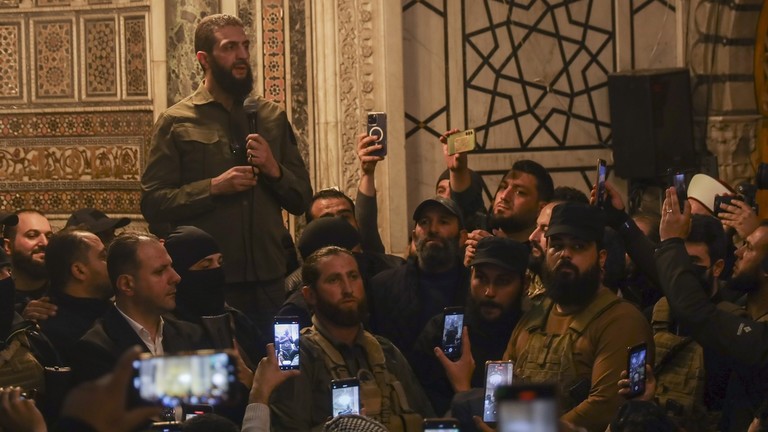World
US Removes $10-Million Bounty for Syria’s New Leader

The US government has withdrawn its $10-million reward for information on Syria’s new leader, signaling a potential shift in its Middle East strategy.
The United States has removed its $10-million reward offer for information leading to the capture of Syria’s new leader, Ahmed Hussein al-Sharaa, also known by his nom de guerre Abu Mohammad al-Julani. This decision follows a meeting in Damascus on Friday between a Washington delegation and the leadership of Hayat Tahrir al-Sham (HTS).
Earlier this month, Syrian opposition forces spearheaded by HTS jihadists initiated a surprise offensive nationwide, leading to the ousting of Bashar Assad. He subsequently resigned as president and was granted asylum in Russia.
On Friday, Barbara Leaf, the US Assistant Secretary of State for Near Eastern Affairs, led a delegation to Syria and met with Al-Sharaa. This visit marks the first time American diplomats have traveled to the country since 2012 when the US embassy in Damascus closed its doors.
Leaf states that they talked about the necessity of preventing terrorist organizations from functioning within Syria and emphasized the importance of safeguarding minority rights and women’s rights.
During a phone briefing from Jordan, Leaf stated, “We also addressed the essential need to prevent terrorist groups from threatening either inside Syria or externally, including against the US and our regional partners. Following our discussion, I informed him that we would not continue with the Rewards for Justice offer that has been in place for several years.”
Leaf highlighted that the choice to withdraw the bounty signified a policy shift intended to make engagement with the group more legitimate. Despite this change, HTS is still classified as a foreign terrorist organization by the United States, and sanctions associated with this designation remain in effect.
“If I’m having a lengthy, detailed discussion with the HTS leader, it’s somewhat inconsistent to also have a bounty on his head,” she remarked. “Otherwise, I should probably ask the FBI to come in and arrest him or something.”
The US delegation also comprised Roger Carstens, the Special Presidential Envoy for Hostage Affairs, and Daniel Rubinstein, a senior adviser responsible for managing relations with the new Syrian forces. Among other topics, they deliberated on the case of missing American journalist Austin Tice, who vanished in Syria in 2012.
This week, the US military announced that it had increased its troop presence in Syria to about 2,000 soldiers prior to Assad’s fall. This move was aimed at preventing Islamic State terrorists from taking advantage of the turmoil. On Thursday, the Pentagon carried out airstrikes in the northeast region of Syria, reportedly killing a leader of the terrorist group.
Although there are no immediate plans to reopen the US embassy in Damascus, Leaf suggested that any future diplomatic recognition would rely on the actions of the new Syrian authorities.
